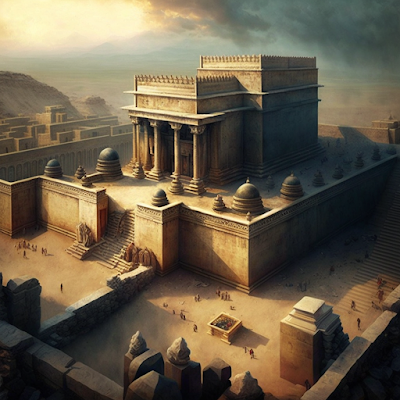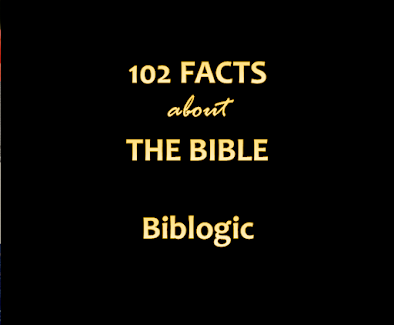Biblical Hebrew Vocabulary
Biblical Hebrew is a form of the Hebrew language that was used in the writing of the Hebrew Bible, also known as the Old Testament. It is a classical language that was used by the ancient Israelites and is considered the language of Jewish liturgy and scholarship. Here is a list of some common words in Biblical Hebrew and their meaning:
- יְהוָה (Yahweh) - LORD
- אֵל (el) - God, mighty one
- אֱלֹהִים (Elohim) - God, gods
- אָדָם (Adam) - Man
- בֵּן (Ben) - Son
- קֹדֶשׁ (Kodesh) - Holy
- רוּחַ (Ruach) - Spirit
- יוֹם (Yom) - Day
- דָּבָר (Davar) - Word
- מֶלֶךְ (Melech) - King
- נָפַשׁ (Nefesh) - Soul
- עֶבֶד (Eved) - Servant
- עֵץ (Etz) - Tree
- כָּבוֹד (Kavod) - Glory, honor, respect
- עוֹלָם (Olam) - World, eternity, age
- שָׁלוֹם (Shalom) - Peace, wholeness, completeness
- תּוֹרָה (Torah) - Law, the first five books of the Hebrew Bible
- חֶסֶד (Chesed) - Kindness, mercy, love
- בְּרִית (Brit) - Covenant, agreement, treaty
- צֶדֶק (Tzedek) - Righteousness, justice
- חַיִּים (Chayim) - Life, vitality, energy
- תְּפִלָּה (Tefillah) - Prayer, supplication, devotion
- נְבוּאָה (Nevu'ah) - Prophecy, divine revelation, inspiration
- קָדוֹשׁ (Kadosh) - Holy, sacred, set apart
- רַחֲמִים (Rachamim) - Compassion, mercy, grace
- חַטָּאָה (Chata'ah) - Sin, wrongdoing, transgression
- גְּבוּרָה (Gevurah) - Might, power, strength
- מַלְכוּת (Malkhut) - Kingdom, sovereignty, rule
- בִּינָה (Binah) - Understanding, insight, intelligence
- פֶּסַח (Pesach) - Passover
- חֶמְלָה (Chemlah) - Pity, compassion, sympathy
- גּוֹיִים (Goyim) - Nations, gentiles, non-Jews
- עֹלָה (Olah) - Burnt offering, sacrifice
- בָּרוּךְ (Baruch) - Blessed, praised, exalted
- רֵעַ (Re'a) - Neighbor, friend, companion
- תָּמִים (Tamim) - Blameless, complete, wholesome
- מִזְבֵּחַ (Mizbeach) - Altar, the place of sacrifice
- כַּבֵּד (Kaved) - Heavy, burdensome, difficult.
- עָמֵל (Amel) - Laborer, worker, toil
- בַּקָּר (Bakar) - Cattle, livestock, herd
- חֵן (Chen) - Grace, favor, charm
- כְּפָרָה (Kefarah) - Atonement, covering, forgiveness
- רֶגֶל (Regel) - Foot, leg, pilgrimage
- חֵיל (Cheil) - Power, strength, army
- פְּרִי (Peri) - Fruit, produce, offspring
- תְּהִלָּה (Tehillah) - Praise, hymn, song of praise
- תְּחִלָּה (Techillah) - Beginning, start, first
- מַטֶּה (Mateh) - Staff, rod, tribe
- כִּסֵּא (Kiseh) - Throne, seat of honor
- נִסִּים (Nissim) - Miracles, wonders, signs.
- מִשְׁפָּט (Mishpat) - Judgment, justice, law
- צָרַעַת (Tzara'at) - Biblical skin disease, often translated as leprosy
- מַטְבֵּחַ (Matbe'ach) - Altar, the place of sacrifice
- תְּשׁוּבָה (Teshuvah) - Repentance, return, turning back to God
- כִּכָּר (Kikkar) - Circular measure of land, talent (unit of weight)
- תַּחְתִּית (Tachtit) - Lower, underneath, bottom
- עֵדוּת (Edut) - Testimony, witness, evidence
- חֵמָה (Chamah) - Sun, heat, anger
- מִצְוָה (Mitzvah) - Commandment, good deed, religious obligation
- רָעָב (Ra'av) - Hunger, famine, scarcity
- גִּלְגָּל (Gilgal) - Circle, wheel, a place in the Promised Land where the Israelites first encamped after crossing the Jordan River
- נֶגֶד (Neged) - In front of, opposite, facing
- שֶׁבַע (Sheva) - Seven, an important number in Jewish tradition
- כַּפַּיִם (Kapayim) - Hands, an expression of blessing in Jewish tradition
- יֶלֶד (Yeled) - Child, son, offspring
- כְּנַף (Kanaf) - Wing, corner, edge.




Comments
Post a Comment